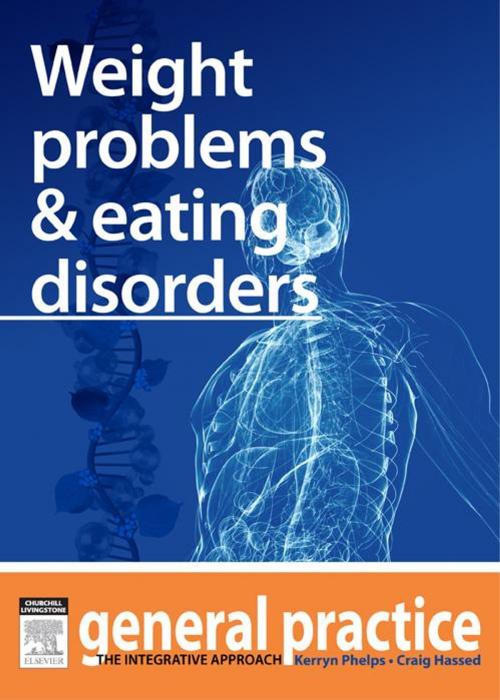Weight Problems & Eating Disorders
General Practice: The Integrative Approach Series
Nonfiction, Health & Well Being, Medical, Specialties, Internal Medicine, General| Author: | Kerryn Phelps, MBBS(Syd), FRACGP, FAMA, AM, Craig Hassed, MBBS, FRACGP | ISBN: | 9780729581899 |
| Publisher: | Elsevier Health Sciences | Publication: | October 30, 2012 |
| Imprint: | Churchill Livingstone | Language: | English |
| Author: | Kerryn Phelps, MBBS(Syd), FRACGP, FAMA, AM, Craig Hassed, MBBS, FRACGP |
| ISBN: | 9780729581899 |
| Publisher: | Elsevier Health Sciences |
| Publication: | October 30, 2012 |
| Imprint: | Churchill Livingstone |
| Language: | English |
Weight Problems and Eating Disorders - General Practice: The Integrative Approach. This chapter discusses anorexia and bulimia-like disorders. These eating disorders are characterised by the use of inappropriate behaviours to control body weight and feelings, as evidenced by low body weight, high body weight, extreme weight-control behaviours such as vomiting and starvation, excessive exercise and binge eating.
Obesity - General Practice: The Integrative Approach. General Practitioners in primary care are uniquely placed to help in the management of patients in all stages of overweight and obesity, and are able to maintain a therapeutic relationship with patients over many years. General practitioners should take a long-term view of weight problems, which can mean avoiding goals for weight management that are unlikely to be achieved.
Weight Problems and Eating Disorders - General Practice: The Integrative Approach. This chapter discusses anorexia and bulimia-like disorders. These eating disorders are characterised by the use of inappropriate behaviours to control body weight and feelings, as evidenced by low body weight, high body weight, extreme weight-control behaviours such as vomiting and starvation, excessive exercise and binge eating.
Obesity - General Practice: The Integrative Approach. General Practitioners in primary care are uniquely placed to help in the management of patients in all stages of overweight and obesity, and are able to maintain a therapeutic relationship with patients over many years. General practitioners should take a long-term view of weight problems, which can mean avoiding goals for weight management that are unlikely to be achieved.















